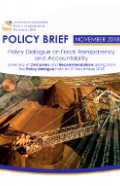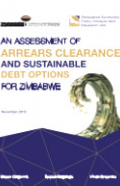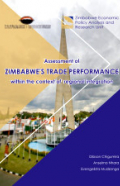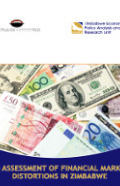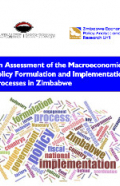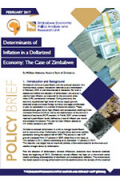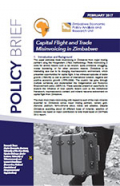This brief outlines the outcomes and recommendations from the policy dialogue on Fiscal Transparency and Accountability that was held on the 28th of November 2018.
Publications
The research paper assesses external debt payment arrears clearance strategy for Zimbabwe with the view to come up with optimal strategies for debt and arrears resolution.
Despite the commitments with trading partners to facilitate ease of flow of goods and elimination of barriers to trade, the economic challenges Zimbabwe face are pushing it to apply protectionist policies on imported goods from the region, thereby undermining deeper regional integration.
The research study aimed at assessing the market distortions in the Zimbabwe financial market.
The study reveals that unit labor costs and the public sector wage bill are generally high in Zimbabwe . For more findings, download your own copy!!
This study sought to assess the macroeconomic policy making and implementation processes in Zimbabwe to get a deeper understanding of the country's unsatisfactory policy implementation record and possible reasons behind it.
This is a report for a pilot project on YEETT that was funded by the African Capacity Building Foundation (ACBF) to inform and assess the effectiveness of developing youth empowerment models that leverage on technology transfer
The mining sector contributes approximately 10% of GDP in Zimbabwe and just over 50% of the export earnings.This study hence sought to assess the scope and applicability of beneficiation and value addition of these minerals in Zimbabwe.
Over the last decade, Zimbabwe’s Competitiveness in the soya been market has sharply declined. The country’s soya is currently not competitive domestically and regionally.
Zimbabwe’s drive to hyperinflation and the eventual adoption of a multi-currency system, henceforth referred to as a dollarization in February 2009, is well documented in literature.
This paper estimates trade misinvoicing in Zimbabwe from major trading partners using the Morgenstern (1963) methodology. Trade misinvoicing is done for several reasons such as tax evasion, quota avoidance, smuggling, money laundering, or for other unknown reasons.





